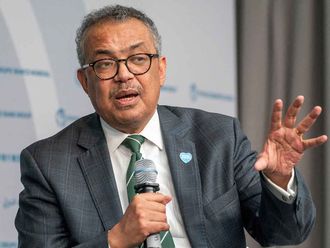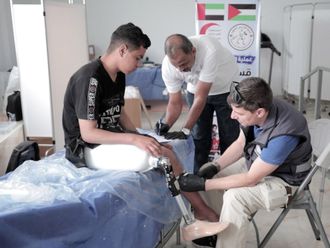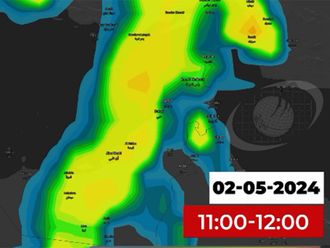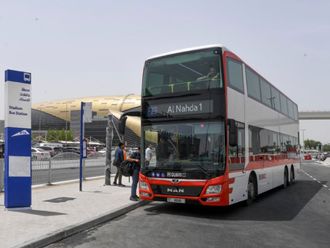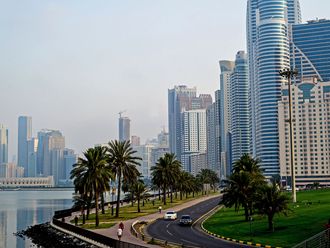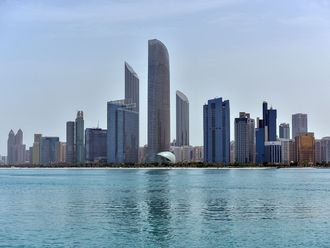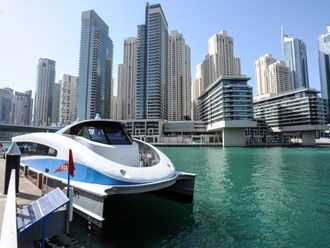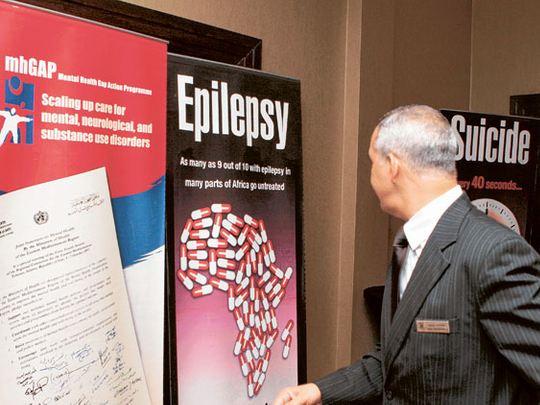
Abu Dhabi: Drug and alcohol abuse is more prevalent among young adults than earlier thought and there is need for nationwide efforts to identify the problem and deal with it on scientific grounds, an expert has warned.
Dr Hamad Al Gaferi, director-general of the National Rehabilitation Centre (NRC), told Gulf News that the issue is quite important because it affects a group of the community who are in a stage of building their personal and professional lives.
Al Gaferi was speaking at the end of a three-day training seminar on Management of Alcohol and Substance Abuse.
Recovery
The NRC and the World Health Organisation (WHO) held a ‘Train the Trainer' seminar to educate those involved in identifying and helping alcohol and drug abusers and introducing programmes and methods to help recovery.
"The problem is mainly affecting people of 20 to 40 years of age. Six per cent are below 35 and 62 per cent of them are unemployed. Recently we [have] started to see teenagers as young as 13," he said.
Necessary treatment
"Suppression of drug and alcohol-related problems begins by identifying affected individuals and providing them with necessary health and psychological treatments."
The penetration of drugs and alcohol in the UAE is an issue that the authorities take very seriously.
"A study involving the Minister of Interior, health authorities and social development institutions is underway to assess and get an insight of the substance abuse problem in the UAE and offer solutions," Dr Ali Al Marzouqi, Surveillance and Advocacy Section manager at NRC, told Gulf News.
"Most of the patients have a limited level of education and suffer unemployment. In addition we have a large number of people who are addicted and abuse prescribed medication," he added.
The workshops provided information on tools used for screening users of harmful substances, recognising signs of health and psychological problems and guidelines on effective physiological and pharmacological treatments.
Treatment packages
"We introduced different screening and treatment packages developed by WHO to build capacity in the region so that mental health and problems due to substance abuse can be part of the general health care. This in turn will make people comfortable seeking treatment," Dr Khalid Saeed, regional advisor for mental health in the Eastern Mediterranean Region, told Gulf News.
"The training workshop was aimed at introducing the trainees on the tools used for screening the use of harmful substances, focusing on ASSIST-linked Brief Intervention programme and guidelines on Psychosocially Assisted Pharmacological Treatment of Opioid Dependence," Al Gaferi added.
Addicts not criminals
The NRC is the national addiction response body in the UAE, tasked with the responsibility of alleviating the impact of substance abuse on the individual, families and society at large and introduction of treatment and rehabilitation services in line with internationally-acclaimed medical standards.
Dr Marzouqi urged society to be mindful of the fact that "rehabilitated drug addicts are not criminals. They were victims of certain circumstances and need help."



